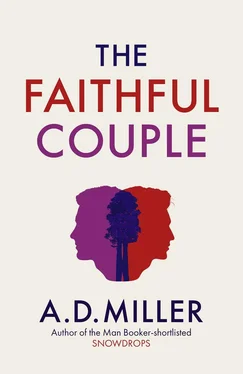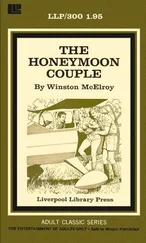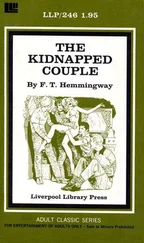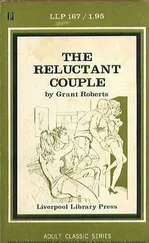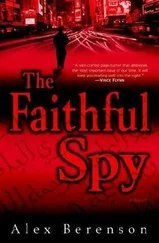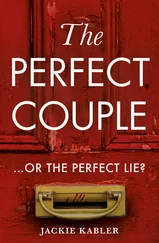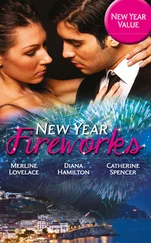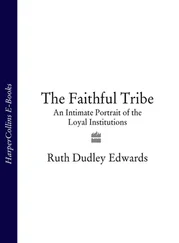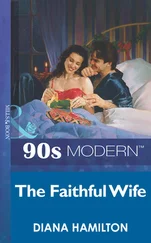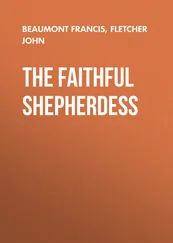‘What sort of party is it?’ Adam said. The rain had slicked and darkened his hair.
‘Well, Henry, it’s this sort,’ Sian said, pushing onto her tiptoes to kiss him. As their lips met — just the lips, briefly — Adam’s eyes found Neil’s again.
Neil and Alida kissed, too, politely, understanding that they were supposed to. Her lips were cold like a mermaid’s, the back of her coat where he gripped her was wet and warm at once. He kept his eyes open and saw the scalp beneath her hair, the brown roots that betrayed the blond. The water penetrating their hide-out looked like urine. When she diffidently introduced her tongue he pulled away.
The rain eased off and the four of them walked up the Strand and into the Aldwych, notionally to find a taxi to the women’s digs near Euston. A bus splashed gutter water over Neil’s legs, and outside the cocoon of the doorway and without the transfiguration of the rain, he could see that this was impossible. A swivel of his eyes and a nod from Adam and they absconded, diving into an unlicensed cab that pulled up serendipitously at the kerb.
That was the night Neil’s grievance over California lifted, or seemed to. To begin with he hadn’t been certain that it would. The first time they had seen each other after Adam told him, a year earlier, had been strange, strangerish, as if they were beginning their relationship again. Jess and Claire were there, and that had helped, since they couldn’t talk about California in front of them and, though the women didn’t much like each other and rarely pretended to, their niceties filled the air time. The next time had been at a kiddie-friendly party at the Taylers’. Neil was in the kitchen, watching Adam’s father show the children, other people’s children, how to strike the piñata that was strung up in the living room. Adam came in for a glass of water. As he turned the tap, Neil said, ‘To be honest, Ad, I’m not sure what I’m doing… I mean, to tell me now, after — something like that — after ten years…’
Adam had shot a nervous look towards Claire and rasped, ‘You told me it was nothing.’
‘That’s all you care about, isn’t it? Her not finding out.’
‘Tell Grandpa my turn,’ Harry said, taking Adam’s hand and leaning forward to drag him away, like a miniature workman on a cable.
Adam left the tap running; Neil turned it off. Jeremy struck the piñata over-arm and viciously, as if he were playing tennis, and split it.
From the beginning Neil had wanted to forgive him: in the underpopulated scheme of his life, he hadn’t seen what other choice he had. But he only truly managed to that night in the rain. The point was, Adam would have gone through with it. He would have gone to Euston with Sian and Alida if Neil had required him to; if that had been his price. The kiss in the doorway was enough, the new secret and shared vulnerability that they needed. An equal secret, this time. Again the two of them against the world.
On the back seat of the taxi, steam rising from his rain-soaked trousers, agreeing never to mention this without either of them saying a word, their Balkan driver pining for Pristina, Neil’s resentment seemed to wash away, as if it had only ever been an act. That was the end of her, he had hoped that night.
Jess was furious when he told her. Neil flew in from Baku, Jess from Buenos Aires, both of them retaining the rumpled vigour of the business-class traveller. They had sex immediately, out of habit as much as appetite, the sense that they ought to desire each other, the ghost of desire, as much as the thing itself. The lights were out as always, very little said, the distance Neil needed in his intimacy.
They showered. He shaved. They plugged in their BlackBerries, which rubbed alongside each other on the kitchen counter like mating reptiles. Neil told her about Rose. She couldn’t remain a secret, or a risk, or a threat. He would bring her into the open, neutralise her, on his own terms.
Neil told her about the girl, the tent and the uproar in the morning, the competition the night before, how they had left her there, crying. ‘I know I should have asked her,’ he said. ‘I know I should have told you about this before. I don’t know, I’m sorry.’
Jess was furious, but not about Rose. Neil, the tent and Yosemite sounded quite humane, she considered, compared with, say, the concrete base of a war memorial, a winter night in Yorkshire, and a drunk, married man. Fifteen wasn’t even that young, was her verdict. Little cow only got what she wanted, she was probably on a dare, who’s to say she was a virgin, anyway?
‘It wasn’t like that,’ Neil said. ‘She wasn’t.’ He pictured her blushing and blushing when Adam flirted with her beside the campfire. Afterwards, in the tent, she had put her T-shirt back on, and her knickers, and she had propped her head on his chest and babbled about movies and friends and what the friends thought of those movies.
Her father should have known better, Jess said. ( Don’t stay up late, honey .) Anyway it was more than a decade ago, she told him. It was nothing.
Adam had better not contact her.
‘That’s what I keep saying, I know.’
She was furious with him for having taken the trouble to keep it from her. Not for not telling her, exactly. Had she found out about Rose accidentally, pursuing some leading remark that Neil let slip, this scrape wouldn’t have mattered, Jess said. There were bound to be unmentioned details from their prior lives, half-forgotten summer jobs and abandoned hobbies, dead friendships and tipsy clinches too trivial to have brought up, which came as tiny yet salutary reminders of each other’s mystery. She understood that. As for her, Neil didn’t know the half of it, she told him. (Those men on the pedalo and her friend.)
The offence lay not in the trifling facts, nor in their concealment, but in the importance Neil himself had ascribed to them: in the secrecy and the conspiracy. A secret between him and Adam.
‘You fucking boys,’ Jess said. She picked up a corkscrew from the kitchen counter, registered that she was pointing it at Neil, and put it down. ‘I mean, I can just see you. Stewing. Should I tell her? When should I tell her? Oh, Adam, what do you think? When I never would have given a fuck.’
‘It wasn’t like that.’
‘What else do you two keep to yourselves?’
‘Nothing.’
‘What is it, then? Card school? Hash cakes? Little boys?’
‘Jess, don’t.’
‘Christ, Neil… You’re nobody’s fool and nobody’s child. You’re your own you, that’s the point of you, can’t you see that? That’s why I… You’re all there. Except when you’re with him, and you become this sort of adolescent sidekick. Look at him, Neil, and look at you. Look where you both are.’
‘I said don’t.’
‘It’s like he’s your fucking father or something.’
‘No,’ Neil said. ‘Not any more.’
Actually it had bolstered Neil, Adam’s confession; it had tipped the scales in his favour. The yeoman and master routine was winding up. These days he saw Adam’s faults, but had come to regard the annoyances (that thing he did with his jaw) as a part of his appeal. Fellowship in weakness was one of friendship’s consolations.
‘Or your mother.’
‘What’s my mother got to do with it?’
‘Oh Neil,’ Jess said. She picked up a knife and slashed open a packet of mozzarella, as if an aggressive pretence of normalcy might save them. The cloudy suspension ran over her hands. ‘You’re done for.’
The two of them had gone up to Yorkshire for the funeral of Jess’s mother at the end of the previous year. A dozen mourners, plus a vicar who hadn’t known the dead woman, in a church so cold that no one had removed their coats. No music, because neither Jess nor her mother had chosen any. On a shelf in her mother’s bedroom closet, in a shoebox, Jess found: a yellowed local newspaper cutting about a rugby match in the twenties, in which her mother’s father had played wing three-quarter; a photo of her parents on their wedding day, her mother in a satin dress, her father wearing a baggy suit, a gallon of Brylcreem and the smile of a man who had something to look forward to (though what did Jess know about that — what did she really know?); a letter from another man, not her father, written a year after her parents were married and a year before Jess was born, which said nothing in particular, and at the same time, between the lines, something very particular ( Ever yours, Ted ); a very small brown envelope containing a lock of Jess’s baby hair (she hadn’t realised how fair she had been); a letter Jess had sent home from university during what, judging from the date, must have been the middle of her first term, which genuinely said nothing in particular, between the lines or on them, and which she had no recollection of writing; a retirement card from her mother’s colleagues at the primary school where, after she was widowed, she had worked as a dinner lady, as much for the company as for the money. More than the loss itself — which, truth be told, as Jess liked it to be, was sudden but less than devastating — what stung her, she said, was the sense of what her mother’s life had been. And the unspoken question that this observation prompted, about what her own life would add up to.
Читать дальше
